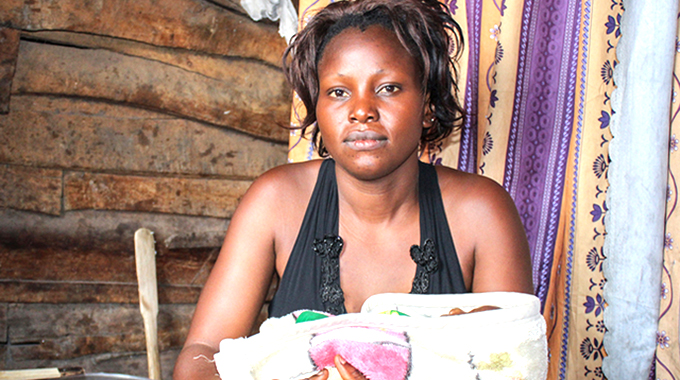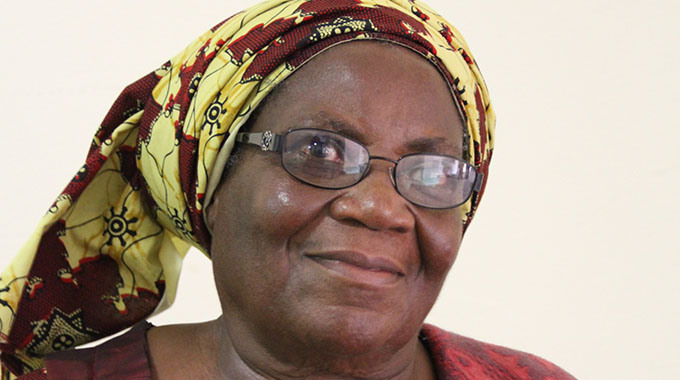Widows continue to suffer in silence

Samantha Chipoyera Features Writer
“We got a letter from the mine telling us that the mine was going to close and my husband was to stop going to work with immediate effect.”
When their spouses die women tend to suffer the most.
Housewives are the most affected, when their working spouse die they are left with nothing and sometimes they do not even get benefits from their spouse’s former employers.
For a woman who only identified herself as Sara (42) month-ends were a joy to her and her family.
They were characterised by lavish shopping in Chegutu town and special meals.
Her husband worked at a mine in Ngezi where he was a foreman.
Life was good for her and she could send her children to a local mine school in Ngezi.
Things suddenly changed in 2010 when her husband was retrenched without notice.
“We got a letter from the mine telling us that the mine was going to close and my husband was to stop going to work with immediate effect,” Sara said.
“They told us we could still live in the houses provided for us by the mine but they did not give us a single cent.”
Life for her was no longer the same as she was left without a source of income to sustain her family needs.
Two years after retrenchment, her husband died after a short illness leaving behind Sara and her four children.
“A few years after his retrenchment my husband died after a short illness,” Sara said.
“I was so broken down and I did not even know where to start from. I was a housewife and I depended on his income.
“I did not do well in school and I was married at a very young age. My husband was the one who handled all issues.”
Sara handled her husband’s funeral single handed and the mine which he worked for did not even assist.
To make it worse her husband’s relatives took all their valuable property leaving Sara and her children with a few belongings.
“When my husband died the mine did not assist us at all. I buried my husband on my own without any support from relatives.
“His relatives took almost all our valuable property and shared it among themselves. I had nowhere to start from.”
Her children dropped out of school because she could not afford to send them to school.
“My children ended up dropping out of school because I could not afford to pay for their school fees.
“My eldest daughter passed her Ordinary Level with flying colours but she could not proceed with school because I could not pay.
“She ended up getting married at 18 and I don’t blame her, I could not feed her properly here. She was probably looking for a better life, I am glad her husband is a good man,” continued Sara.

The plight of widows is almost similar in most settlements as they are left homeless and cashless besides grieving
Earlier this year, Sara and other people who worked with her husband at the mine received the shock of their lives after they were given notice to vacate the mine houses within three months.
They were told the mine had been bought and was under new ownership.
This meant that Sara and her children could soon be homeless.
She would have to leave her home which she had stayed for the past 20 years without any benefits.
Sara told The Herald that she would be leaving for her rural home — Murehwa where her parents stay.
Sara is not alone in all this.
Jestina Kambarami (49) another widow from Magunje about 35 kilometres away from Karoi faced a similar predicament.
She is a vendor and sells an assortment of fruits and vegetables at Magunje growth point to survive.
“My husband used to be a farm manager at a farm near Magunje,” she said.
“He used to be paid very well and we lived a good life.
“When we lived on the farm we had everything we needed from tap water to electricity. We were as good as people who were living in town.
“Things changed when my husband was retrenched. He never got any pension. Life turned for the worse for us,” said Kambarami.
She said they were forcibly removed from the farm compound and had nowhere to go.
“It was not easy for us,” she said. “We had to stay in the open for weeks.”
Kambarami lost her husband in 2007 due to an HIV related illness.
“My husband died in 2005 due to an HIV related illness leaving me behind with two children,” she said.
“Life became very tough for me as I was prejudiced because of my HIV status.
“Our children dropped out of school and my older son left home after the death of his father. I hear he is in Gachekache where he is a fishmonger. He hasn’t even sent a word to me since he left.”
After they were chased from the farm they stayed in the open, she later went to stay with her in-laws.
“I was forced to go and stay with my in-laws together with my 20-year-old daughter. Life was very hard for me there,” Kambarami said.
“My in-laws gave me a hut and told me to look after myself and daughter. They accused me of being a witch and blamed me for the death of my husband.”
Her daughter later got married to a business man who owns shops in Chitimbe area close to Magunje.
“Her father’s relatives took almost all of her bride price and gave me little money out of it,” she said.
“I then decided to do vending to survive on my own as all my children were now looking after themselves. I earn a little and I cannot make ends meet. I am HIV positive and I need a healthy diet but I cannot afford it most of the time.”
Kambarami struggles to pay rent for a one-roomed house at Magunje.
Unemployed women suffer most when they lose their spouses.
They are left to carry the heavy burden of fending for their children.
Their plight is largely ignored. They continue to suffer in silence.
“When we lived on the farm we had everything we needed from tap water to electricity.We were as good as people who were living in town.
”









Comments